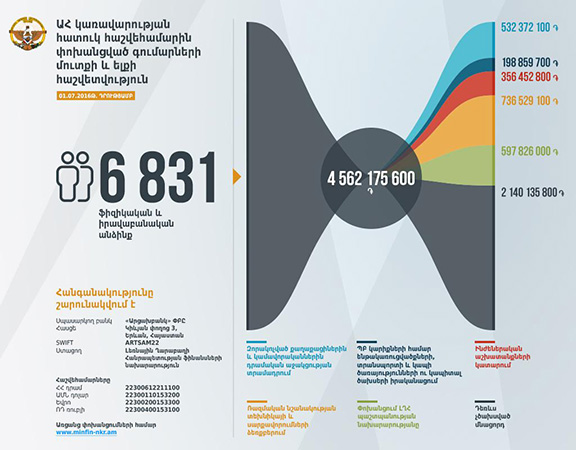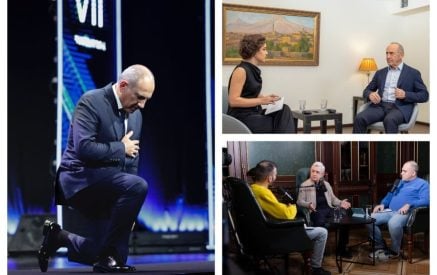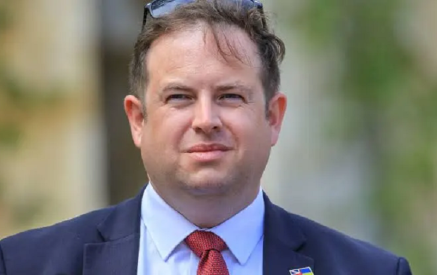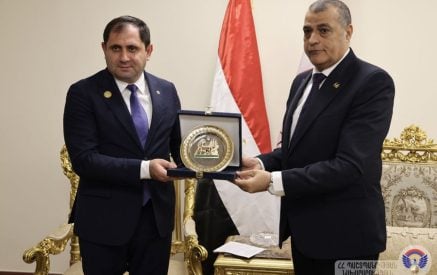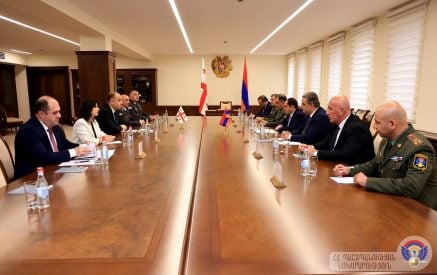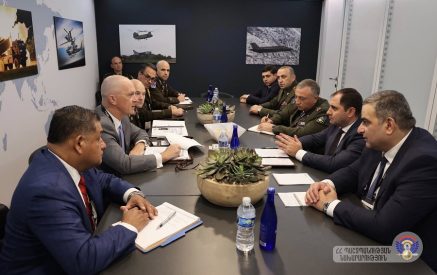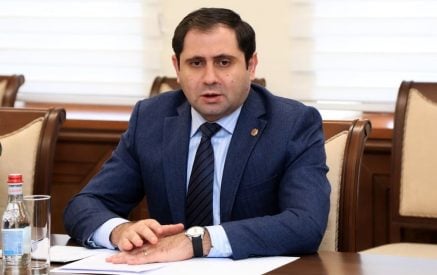The April War was the worst escalation in the Karabakh conflict in terms of its magnitude and casualties since the ceasefire agreement of May 1994. That document as well as the other agreements signed in 1994 and 1995 by the defense ministers of the Nagorno-Karabakh Republic, Armenia and Azerbaijan, were intended to transform the indefinite ceasefire into durable peace.
The newly unleashed aggression by Azerbaijan against Karabakh’s sovereignty confirmed that the priority of the negotiation process under the auspices of the OSCE Minsk Group must be the stabilization of the ceasefire to prevent further military actions. Only after the military option is off the table it will be possible to discuss the political resolution of the Karabakh conflict.
In April, and in subsequent months, a number of Armenian political, public figures and experts redefined their approaches on Artsakh, to better reflect the realities of this conflict. For example, prior to April, a number of Armenian intellectuals considered a compromise deal involving an exchange of some Karabakh territories for peace and security. But the military crimes committed by the Azerbaijani military proved that any such compromise would only increase a threat of war and genocide.
The war once again served as a catalyst for the self-organization of Artsakh, Republic of Armenia and Diaspora. Thousands of people not waiting for mobilization orders went to the border to defend their homeland. Many others individuals, independently and or on behalf of their organizations, extended financial support to the NKR Defense Army and the affected civilians. To coordinate the incoming aid, on April 4, the NKR Government opened a dedicated bank account and devoted staff resources to manage this fund.
Read also
When my friends and relatives from the Diaspora asked me how they could help, I sent them the bank account details published by the NKR Ministry of Finance. Some of them were surprised, knowing that in recent years I haven’t worked in a state structure. My position was explained by the fact that in cases of emergency, it is more productive to work through state structures. I truly believe that the means collected to address this pan-Armenian issue – guaranteeing Artsakh’s security – are used for their intended purpose. This trust is also based on the transparency of the work of the operative staff, including the periodical publication of the reports on received and spent funds.
Yet another confirmation of the NKR government’s transparent approach is the special report prepared for political and public figures of Armenia and Artsakh. The effort to strengthen the NKR defense brought together people with different political views. After the meeting with NKR Prime Minister, Deputy Prime Minister, Defense Minister and director of the National Security Service, this group became directly acquainted with the works implemented along the border. We, the members of the group, were impressed with the volume of the works conducted, including new engineering structures, introduction of modern reconnaissance and communications equipment, as well as improved conditions for the soldiers on military duty and their living quarters.
The work vigorously continues to be carried out on all fronts. The volume of the projects exceeds the means spent from the special bank account of the Ministry of Finance. This means that Artsakh-based and Armenia-based construction companies and other organizations donated their equipment and other resources for this purpose. I consider it important that the heads of power structures with the support of the NKR political leadership are actively engaged with defense strengthening using not only the traditional means, but also modern technologies including ones locally developed. Some of these technologies can be declassified for use to address civilian needs as well. In other words, a portion of the funds collected for defense needs can contribute to scientific and economic development of NKR as well.
One of our group members Karen Vrtanesyan, who runs the specialized military news site Razm.info, has noted that a modern military system of C4ISR, which stands for Command, Control, Communications, Computers, Intelligence, Surveillance and Reconnaissance, is being established in Artsakh.
The April war has brought about a new situation in the Karabakh conflict and every new situation includes both new challenges and new opportunities. The obvious goal is neutralization of challenges and the maximum use of new opportunities. The ongoing modernization of the Defense Army conducted with civilian oversight will bring our nation’s defense to a qualitatively new level and is a key way to deter the opponent and protect peace in our region. This is an opportunity that we must use for the solution of this urgent national problem and it requires our people’s further support.
It is worth to look at the structure of the sources of donations, which shows passive participation of many Armenian communities. Overall, at the moment of August 15th, the special account has received over $9,682 mln. Around 50% of that amount has been sent from Armenia, over 20% – from Russia, while the USA transfers surprisingly are 2,5% of the whole sum with $244,000 donated by 48 persons. France takes 0,2% with over $19,000 transferred by 26 persons.
As a reminder, the fundraising effort continues and everyone can donate to the special bank account through the following link: https://minfin-nkr.am/?section=payameria/index
Masis Mayilian is the President of Artsakh Public Council for Foreign and Security Policy
Members of the group: Members of the National Assembly of Armenia Nikol Pashinyan, Tevan Poghosyan, Hovhannes Sahakyan, ex-member of NA Anahit Bakhshyan, information security expert Samvel Martirosyan, editor-in-chief of Razm.info Karen Vrtanesyan, human rights defender Artak Kirakosyan and Masis Mayilian.
MASIS MAYILIAN




















































